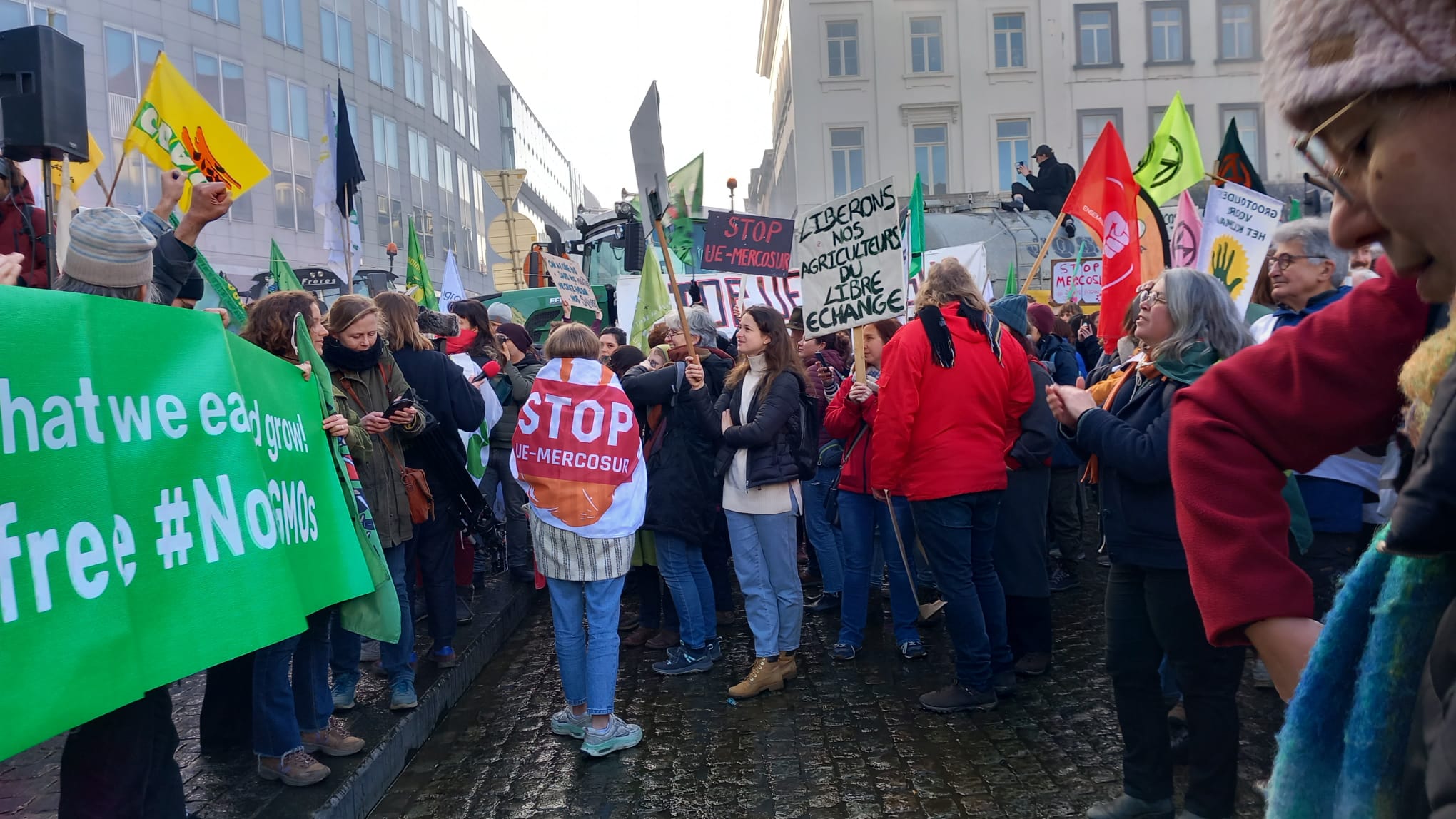International trade crisis : an opportunity to reduce our dependencies rather than create new ones !
Toutes les versions de cet article : [English] [Español] [français]
European Coordination Via Campesina | 15 April 2025
International trade crisis : an opportunity to reduce our dependencies rather than create new ones !
The president of the USA, Donald Trump, has decided to launch a trade war and increase customs duties on imports from the European Union and the rest of the world. Agriculture will be greatly impacted, with producers of export goods (wine, cheese, oil, etc.) being hit hard as well as farmers who will face competition from more goods on the domestic market. In this context, the rapid ratification of new free trade agreements is presented by some as the only solution. This proposal will cause decades of harm to peasant farmers and societies, maintaining the vulnerability of European markets and undermining our desired strategic autonomy. To defend agriculture, food and markets in Europe, we must move away from the free trade paradigm and strengthen food sovereignty !
Indeed, the vulnerability of the European market to US tariffs is the result of the neoliberal policies of recent decades that have promoted a production model oriented towards industrialisation and international trade. Through the multiplication of free trade agreements, these policies are driving a race for competitiveness and the industrialisation of agriculture. Social, environmental and health considerations are being abandoned due to pressures to reduce production costs. In the current geopolitical context, back-to-back political, economic, environmental and health crises are generated and intensified by neoliberal trade logic that increases our dependence on major foreign powers. This is the case of the EU-Mercosur FTA, which will harm vulnerable sectors and impact food sovereignty with total disregard for farmers’ right to a fair price.
Let’s not fool ourselves, Donald Trump’s goal is not to challenge globalisation, but rather to force the rest of the world to import more US goods and comply with his desire for economic deregulation. For agriculture, this would only deepen the current crisis and accelerate the disappearance of small farmers and subsistence farming, hindering the agroecological transition and opening up the European market to products with less stringent standards such as hormone-treated meat or GMOs.
Faced with these facts, Europe must stand strong by demonstrating strategic autonomy in terms of its fundamental needs, in which food plays a central role. We need to eat to live and there is an alternative to bowing to Donald Trump and stepping up free trade : the European Union must invest in food sovereignty everywhere by promoting policies geared towards the territorialisation of food production, supporting an agroecological transition, ensuring generational renewal and protecting farmers from future economic and ecological tensions.
At a time when Europe is already investing massively in defence via an unprecedented arms policy and abandoning all the objectives of the Green Deal, we must not be sucked into a race for geopolitical competition, with serious consequences for peace, for human rights and territories. No security or defence strategy can be sustainable without guaranteeing food sovereignty. For the peasant movement, solutions to the current accumulation of crises and reactionary and authoritarian threats must be based on human rights, democracy and individual and collective freedoms. International solidarity, fair trade and peoples’ food sovereignty must be central pillars to building a just and peaceful world. ECVC invites civil society to build a common front along these lines.






